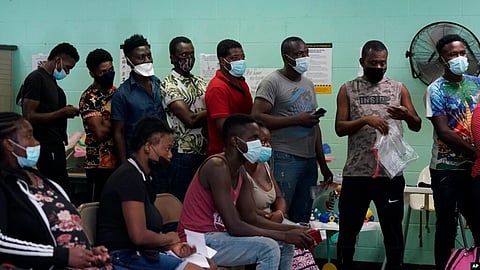And once the Department of Health and Human Services lets the covid-19 public health emergency expire, millions of people on Medicaid could lose their benefits. A federal mandate has prevented states from kicking people off Medicaid during the pandemic.
That mandate has ensured coverage for millions of Americans who otherwise may not have had it, and engendered support for Medicaid expansion, supporters say.
“The pandemic has changed a lot of folks’ attitudes about whether or not health care coverage is something that you need,” Dagneau said.
Advocates believe North Carolina is the most likely state to expand its program next, covering an estimated 400,000 uninsured people. Democratic Gov. Roy Cooper and Republican leaders in the North Carolina General Assembly back the move but have been unable to reach a compromise.
The John Locke Foundation, a conservative think tank in North Carolina, opposes expansion on the grounds that it would create unsustainable financial burdens, among other reasons. But it seems the state is in a holding pattern.
As Mitch Kokai, its senior political analyst, put it: “I think the one-word description right now is ‘stalemate.’”
KHN (Kaiser Health News) is a national newsroom that produces in-depth journalism about health issues. Together with Policy Analysis and Polling, KHN is one of the three major operating programs at KFF (Kaiser Family Foundation). KFF is an endowed nonprofit organization providing information on health issues to the nation. (HN/KHN)
Hurry up! Join the Medical Internship 3.0 at MedBound!


